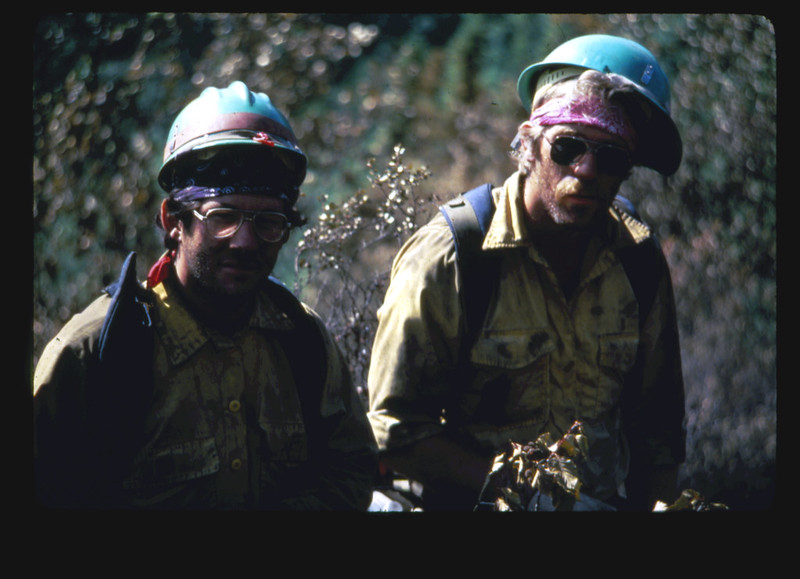
Back in the antediluvian days, I was a government GS-4, Forest Service fire fighter. I did four summers on a Category One, interregional crew. Folks love the term “Hots Shots”, but the jumpers just called us ground pounders. They figured they were much cooler than us, parachutes and all. Maybe they were.
“Interregional” means we got sent off our home forest to “project fires”. When a fire gets to a certain size, it becomes a “project fire” then the local forest didn’t have to pay the costs, it came out of a national budget. Our home forest only had to pay our wages if we weren’t on a fire. Can you see a budgetary problem here? We talked about the wisdom or folly of policies like these as we chopped and dug.
Have you ever noticed that any news story about wildland fires uses the term “bone weary” when they describe the crews? We always joked about that term as we napped on the airport runway waiting for the DC3. Like any big government deal, there were lots of inefficiencies. And we could see them close up. We all knew when there was waste happening, but most of us knew we couldn’t manage it much better if we were in charge. That didn’t stop our grousing.
It sure was a privilege to see some of the most beautiful country in the West and get paid to do it. Yeah, and some of it turned black, or white or grey, instead of that beautiful green we think of when we say “forest”.
To be honest, project fires needed weather to put them out. Hand crews cannot do much when the forest is dry, the humidity is down and there’s any wind. Except, that is, do your best to not get hurt.
But it was dirty, hot, sometimes cold (woke up under 6” of snow on my first project fire in Wyoming), filthy, exhausting, grimy, work. I really remember the dirt. And I remember the people on the crew. I’m not joking about having forest management policy discussions. It was a great group. I’m still friends with some.
I will admit I had no lofty goals about saving the forest. I needed the money for college. But that first year I stayed late because California burns in September and California was where the money was. Often the 20-man crew would lose guys in August as they went off to college. My first year we were based in McCall, so if we got a call, we could fill out our crew with any jumpers who wanted the work. We took five with us to California. We had seen a lot of fire that summer, mainly in Idaho. We’d run a few times and been burned over on the Middle Fork. So, when the fire came up the California chapparal canyon, we felt OK hunkering in the middle of a three Cat blade wide fire break. We could see it would go up one side first, then the other. We didn’t pop our fire shelters. But the jumpers did.
Staying late I was able to save enough money to pay for college, felt secure enough financially to marry the woman I loved, and started building a career, a life, a family. In that sense, firefighting was very good to me, even though it was dirty. And I never got hurt.
Our family grew to have four daughters. I guess I told too many firefighting stories because three of the four ended up working on fire crews. But they, and I moved on from that dirty work. It’s good when you’re young. Dirt washes.
So, the smoke in the air these days doesn’t bother me so much. I know some firefighters are out there making time and three quarters. I do hope they stay safe.
